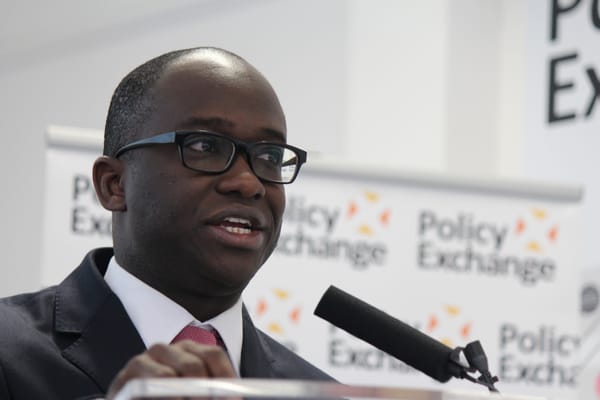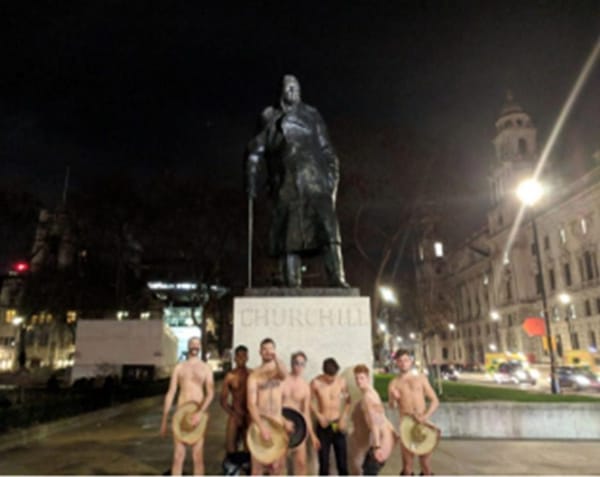Universities withholding millions from staff involved in UCU strike
Russell Group universities have already withheld £8 million in salaries, with further deductions on the horizon.

Russell Group universities have withheld over £8 million in salaries from staff members who participated in this year’s strikes, with further deductions planned for the near future. A series of Freedom of Information requests to Russell Group universities revealed those whose staff took part in the University and College Union (UCU) industrial action have withheld £8,248,376 from academic and support staff thus far. Further deductions will take the total retained by Russell Group universities to over £10 million.
Russell Group universities are planning to deduct an average of over £800,000 from the salaries of staff who took part in the strike, which ran for four weeks in February and March. Imperial College London withheld just under £280,000 from staff in March and April; this number is likely to increase in the coming months.
Imperial College has withheld a full day’s pay for each day a staff member took part in the strike, defined as 1/365th of their annual salary. While the College did not withhold any pay for those working to contract under Action Short Of a Strike (ASOS), its website says they have deducted 25% of a day's salary for staff members who cancelled scheduled student activities on a strike day while undertaking ASOS. The College says it “reserves the right to review this percentage should the dispute escalate”.
In a statement, the College said money retained from striking staff “have been retained by the relevant academic departments to support their efforts to mitigate the impact of the strikes.” A large proportion of other Russell Group universities have ring-fenced the retained salaries for student support: UCL is donating the money to the UCL Financial Assistance Fund for students, while the University of Durham is paying the money into the Student Hardship Fund. The University of Manchester is using some of the money to waive its gown hire fee at graduation.
A spokesperson for Imperial College UCU said they were still waiting to hear about the total amount to be deducted from their members: “UCU is still awaiting a response from management on the total amount of money that wasn’t paid to those who participated in the UCU strike over USS pensions. We also asked for this money to be used to help students directly by transferring it to the student hardship fund. However we’ve learned that the money has been kept within individual departments but has not been ring-fenced to ensure that it can only be used for the benefit of students.”
The strikes, which took place over 14 working days, saw numerous classes cancelled across the country. UCU, which called the strike, did so in response to proposed changes to the USS pension fund put forward by Universities UK (UUK). UCU said the changes would see members of the scheme losing out on up to £10,000 each year in pension pay.
Joint Expert Panel decided
A further 14 days of industrial action were called off at the end of April, as UCU members voted to accept a proposal by UUK. The proposal involved establishing a Joint Expert Panel (JEP) to report on valuation of the current pension scheme, which will stay in place until at least April 2019.
Appointments to the JEP, which will also “agree key principles to underpin the future joint approach of UUK and UCU to the valuation of the USS fund,” were announced last month. UCU and UUK have each nominated three JEP appointments with strong backgrounds in actuarial science and public policy.
UCU has selected Professor Saul Jacka (University of Warwick), Professor Deborah Mabbett (Birkbeck University) and Associate Professor Catherine Donnelly (Heriot-Watt). UUK has selected Ronnie Bowie (Hymans Robertson consultancy), Sally Bridgeland (non-executive director at the Local Pensions Partnership, and trustee of Lloyds Bank pension scheme), and Chris Curry (Director of the Pensions Policy Institute). Joanne Segars OBE, chair of LGPS Central, which pools nine local authority pension funds, will chair the JEP. It is due to report in September 2018.
A spokesperson for UCU told Felix: “The work of the JEP will be closely watched by members of UCU and it is hoped that a satisfactory agreement can be reached to avert the necessity of UCU taking further strike action over our pensions.”
The first meeting of the JEP took place at the end of last month. A report on the meeting stated the Panel agreed to seek submissions from stakeholders on the 2017 valuation of the USS, particularly looking at ‘alternative valuation models and assumptions to those used by USS.” The developments on the pension discussions come as the College begins the annual process of exploring pay options for staff. Last month, members of UCU, Unite, and Unison presented a pay claim to the College showing staff salaries have been falling in real terms by 1.1% each year since 2005. The Joint Trade Unions (JTU) wrote: “Clearly, the College has chosen to devote its surplus to buildings rather than to staff.”
A spokesperson for the College told Felix the discussions have “taken into account feedback from staff raised as part of the Pay and Benefits Review.”
“A number of follow up actions from the Pay and Benefits Review are already underway. Staff raised concerns about the benchmark data used to inform pay decisions, and the Provost has instigated a Benchmarking Working Group that will be led by the Dean of the Faculty of Engineering, Professor Nigel Brandon, and include representatives from across the College. The working group will make an interim report in September.”
The College will meet the JTUs on 15th June to present the College’s pay offer. Information about the offer should be available shortly afterwards.
Tuition Fee Refunds
The debate over tuition fee refunds is still ongoing. A petition that circulated at the end of last term saw over 3,000 students asking for a refund in tuition fees in light of missed teaching. The petition was sent to senior management, but some students felt the response was insufficient. Alex Chippy Compton, President of Imperial College Union, and Luke McCrone, President of the Graduate Students’ Union, at the time said the response from senior management was “unsatisfactory, and failed to address many students’ concerns”.
A class action bid, launched by law firm Asserson, has seen a number of students join to force universities to compensate them for teaching time lost. Asserson estimates fair compensation for teaching time lost would be several hundred pounds per student. The case has attracted over 5,000 students, from a range of universities.
Felix spoke to Shimon Goldwater, an associate at Asserson, about the case. Mr Goldwater called the response from universities “very disappointing”, saying: “We haven’t heard of a single university offering to pay anybody compensation for the lost teaching time.”
He went on to say: “Universities simply will not pay until they’re forced to pay, and the only effective way to force them to pay is to take them to court. To do so individually doesn’t make sense, because it’s too much risk and work for one person, but to do it as a group is doable.”
A College representative told Felix it “currently has no plans to refund students”, saying: “Fees cover all aspects of a student’s time at Imperial, and are based on the delivery of overall outcomes, rather than being payments for specific contact hours.” This argument was echoed by several other Russell Group universities, which said they had no plans to offer refunds to students.
Mr Goldwater told Felix that, while tuition fees do go toward several services, “the question is working out percentages. I don’t think anyone would say the percentage of fees that go on teaching time is zero…if you look at the budgets universities have, salaries of teaching staff are often the single biggest item by a long way. It’s not unreasonable to suggest that more than 50% of the tuition fee relates to face-to-face teaching.”
Earlier this week, results of the 2018 Student Academic Experience Survey were released, highlighting a desire from students for better value for money in their degree courses. Fewer than 40% of students thought they were getting value for money from their university, with tuition fees and teaching quality leading causes of dissatisfaction. Students also highlighted a desire for more contact hours, possibly a result of high fees students currently pay.









